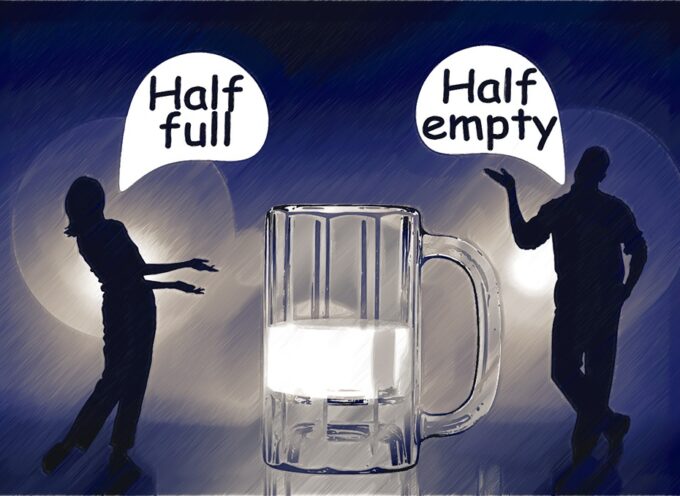Those of us who are evangelicals and politically conservative Americans find ourselves in an increasingly minority role within the United States. Our conservative evangelical vision of the good life competes with many other visions. As we carve out a path of faithful political witness in upcoming years, we must consider whether or not to give explicitly religious reasons for our political views.
I argue that we should carve out a path of faithful witness that (a) avoids twin temptations, (b) promotes twin goods, (c) uses two types of language, and (d) keeps two things in mind:
- We must avoid twin temptations: sacred public squares and naked public squares.
In midst of this plurality, we must avoid twin temptations. On the one hand, we must avoid trying to create a sacred public square in which Christianity (or one version of Christianity) shapes the laws of the country in such a way that other citizens must “become” Christians in order to receive society’s benefits. To do so would be to contradict the gospel, which is freely given and freely received. On the other hand, we must avoid trying to create a naked public square in which religious believers must always lay aside their most deeply held beliefs when debating the common good. To lay aside our religious belief would be to pretend we are somebody we are not and to strip ourselves of the very convictions that can be used powerfully for the common good.
- We must actively promote twin goods: religious liberty and a plural public square.
In place of a sacred square or a naked square, we should prefer a plural public square. Unlike proponents of a naked public square, principled pluralists believe that citizens should be free to draw upon their most deeply held beliefs to articulate their vision for the common good. Unlike proponents of a sacred public square, principled pluralists believe that religious citizens should not try to force other-believers to conform to Christianity in order to be citizens.
In other words, principled pluralists are vocal proponents of religious liberty. We recognize that a person’s free exercise of religion should be curbed if and when that person’s religiously-motivated actions pose a clear and present danger to other citizens. But aside from those minimal restrictions, we believe that the ideal society is one in which religious believers are free to enter the public square as the religious believers they are, persuading other citizens toward their vision of the common good.
Once we have established this Christian framework for principled pluralism, we still must address practical questions about the wisdom of using religious language in public discussion and debate. The political realm is so complex and nuanced (by nature) and messy (because of sin) that we need to cultivate wisdom and pray for virtue in order to navigate it faithfully.
- We may employ either of two argument strategies: thick language or thin language.
One such practical question is whether or not we should employ specifically religious language when we are engaging in a political discussion or debating a matter of public policy. In academic circles, this question is often framed in terms of thick versus thin language.
We should distinguish between “thick” and “thin” language.
The terms “thick” and “thin” come from the cultural anthropologist Clifford Geertz. As he describes it, a thick description is one that explains not just one’s belief or behavior, but the fuller context of that belief or behavior, such as the whole interconnected web of beliefs, feelings, and values operative in a particular culture. A thin description is one that is stripped of those contextual factors.
We can understand the difference by considering the debate about abortion.
In the context of Christianity, a “thick” description will appeal to religious arguments overtly, while a “thin” one will use more generic language. Consider the contentious issue of abortion. In one instance, I might decide to build my case for a pro-life view by appealing publicly to Scripture and traditional Christian teaching (e.g. decrying abortion because an unborn child is made in God’s image). In another instance, however, I might decide to appeal more to common assumptions and shared ideals (e.g. arguing against abortion-on-demand because of its destructive effects on babies, men, women, families, institutions, and societies).
The decision of whether to employ thick language or think language (or a combination of both) will vary subject to subject, occasion to occasion, audience to audience. A Supreme Court justice will most likely take a different approach in writing a dissenting opinion than the President of the ERLC will take when writing an article in Christianity Today.
We should consider the benefits and risks of each type of language.
The decision we make will likely have specific benefits and specific risks. Thick language may express our point with more fullness, but at the same time might ostracize those who do not ascribe to our religion. Thin language may gain a wider audience, but can lose some of the power and precision of speaking within the framework of Christian teaching. What is appropriate discussing one issue in one venue may be folly when discussing another issue in a different venue. We must pray for wisdom in deciding between thick and thin.
- We must keep two things in mind: a thick framework and a full gospel.
So there is significant leeway in how we decide to articulate our arguments. However, we must keep two things in mind:
We should build thick frameworks of thought even if we sometimes employ thin communication.
As evangelical Christians, our views should always be based in Christianity, even if we do not always communicate our views publicly in explicitly Christian terms. For that matter, there is no such thing as a truly thin argument. All beliefs and values grow from within a framework of ultimate commitments. In other words, everybody is religious. Every human being absolutizes Somebody (e.g. the God of Jesus Christ), something (e.g. sex, money, power), or some ideal (e.g. secular progressivism, ethnic nationalism). To that Person, thing, or ideal they give their ultimate love, trust, and obedience, and from it they receive their marching orders for politics and public life. For that reason—since the public square is always and inevitably a playground of the gods—we never sideline our God when constructing our own framework of thought.
We should always be prepared to give a reason for the hope within us.
As Christians, we should be looking for appropriate opportunities to clothe our arguments in the full gospel, the announcement that Jesus is Lord, that he died and rose again in order to provide forgiveness of sins and restoration of the universe, and that all of this is a public truth verified by many persons (1 Cor 15:3-5). Even though in certain venues and for particular purposes we will offer thin arguments, our ultimate aim should be to offer the thickest argument of all: that one day Jesus Christ will return to install a Kingdom in which justice will roll down like the waters. In the meantime, our constant hope is that we can speak and act in the public square in a way that previews the goodness of that kingdom.
Subscribe
Never miss a post! Have all new posts delivered straight to your inbox.







